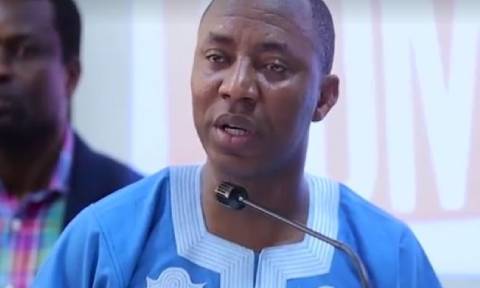
IT is a great and tragic irony of history that about 200 years after Africans were being trafficked across the Sahara Desert and the Atlantic Ocean to the Europe and the Americas as slaves, Africans are willingly heading to Europe, in worse conditions than when they went as slaves. The new slavery has arrived.
Today, a cocktail of conditions at home, resulting mainly from poor governance, causes Africans to abandon their countries in desperate search for assumed better life in Europe and the Middle East. Under the heavy yoke of quasi-slave masters, known as human traffickers, Africans submit themselves, paying heavy prices, in cash, and sometimes with their lives, to be taken to Europe. Many of them die in the inhospitable Sahara Desert. Those who survive the ordeal could perish in the treacherous waters of the Mediterranean aboard overloaded, rickety boats. They die in their thousands – Nigerians are among them.
President Muhammadu Buhari put it correctly when, at the African Union, AU, summit in South Africa he noted, “It is not only an embarrassment to us as leaders, but dehumanises our persons. Indeed, they combine to paint a very unfavourable picture of our peoples and countries.”
Human trafficking and mass migration of Africans outside the continent have joined terrorism and internal instability across the continent as part of the pathetic conditions that diminish the stature of Africans in today’s world. It is very important for the AU to pay attention to the root causes of the migration. Bad governance, sit-tight leadership, inter-ethnic and religious rivalries, human rights abuses and corruption are at the centre of the enervating poverty in Africa.
The solution to the problem does not lie in Africans bolting from their countries to alien climes in hopes of non-existent “better” living conditions. While efforts must be made to stem the tide of these migrations, greater efforts should be invested in ensuring the quality of leadership improves across Africa. No substitute exists for governance that improves conditions of citizens within their countries, so that such countries can improve general global conditions.
Africans should work out unique blueprints that would make it possible to improve the quality of agriculture and infrastructure, especially power supply, to broaden the base of economies and give people useful means of livelihood within their countries. These are possible with collaborations across countries and regions.
Unless urgent steps are taken to improve living conditions in Africa, the spark of xenophobia, which raged in South Africa recently, would become a fad in Europe when their citizens can no longer tolerate the influx of unwanted Africans, some of who would arrive without skills that can earn them a living.
READ ALSO: Buhari to move into Aso Villa, announce some appointments next week
Click And Read More From Newstrack.ng



















